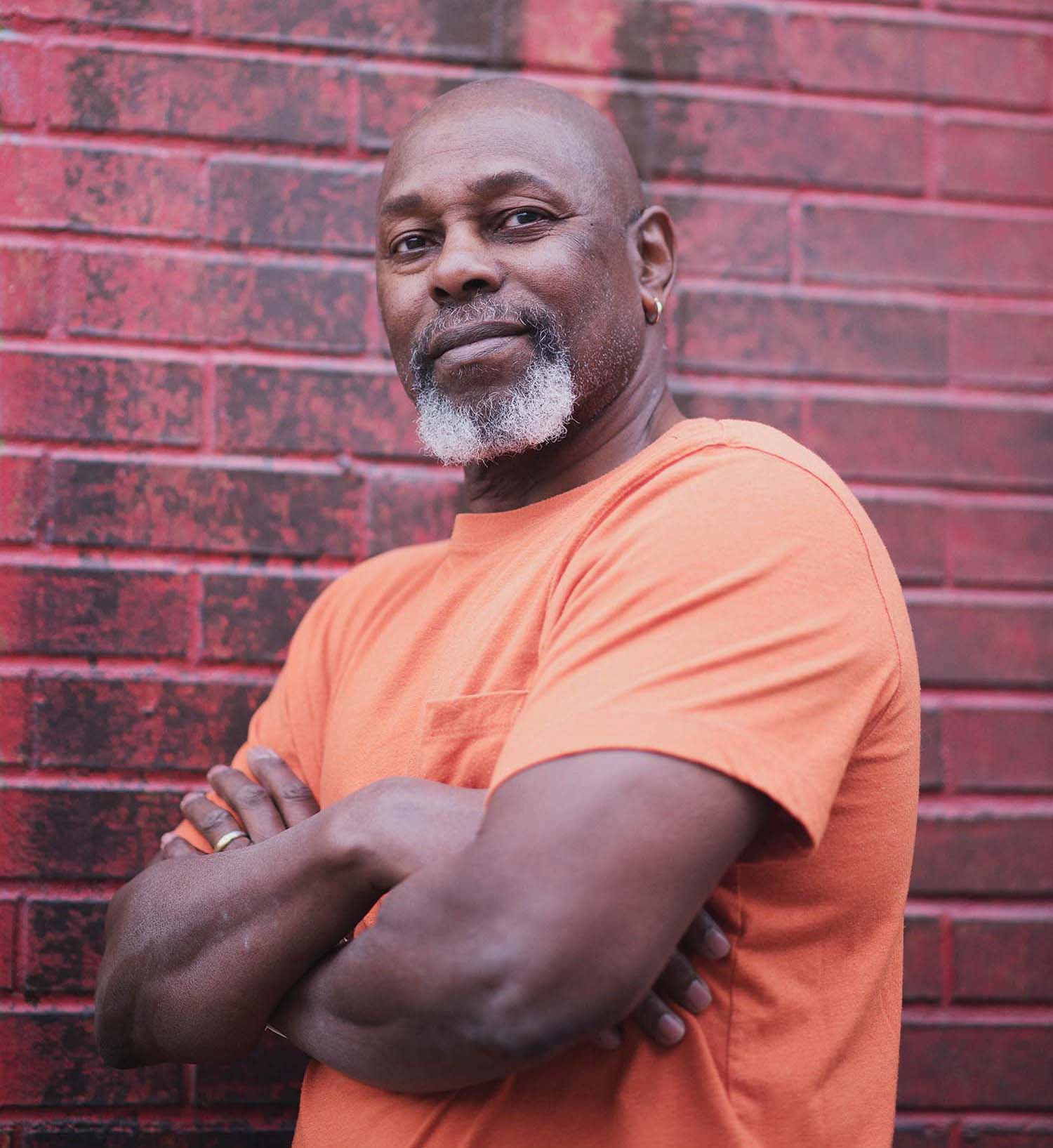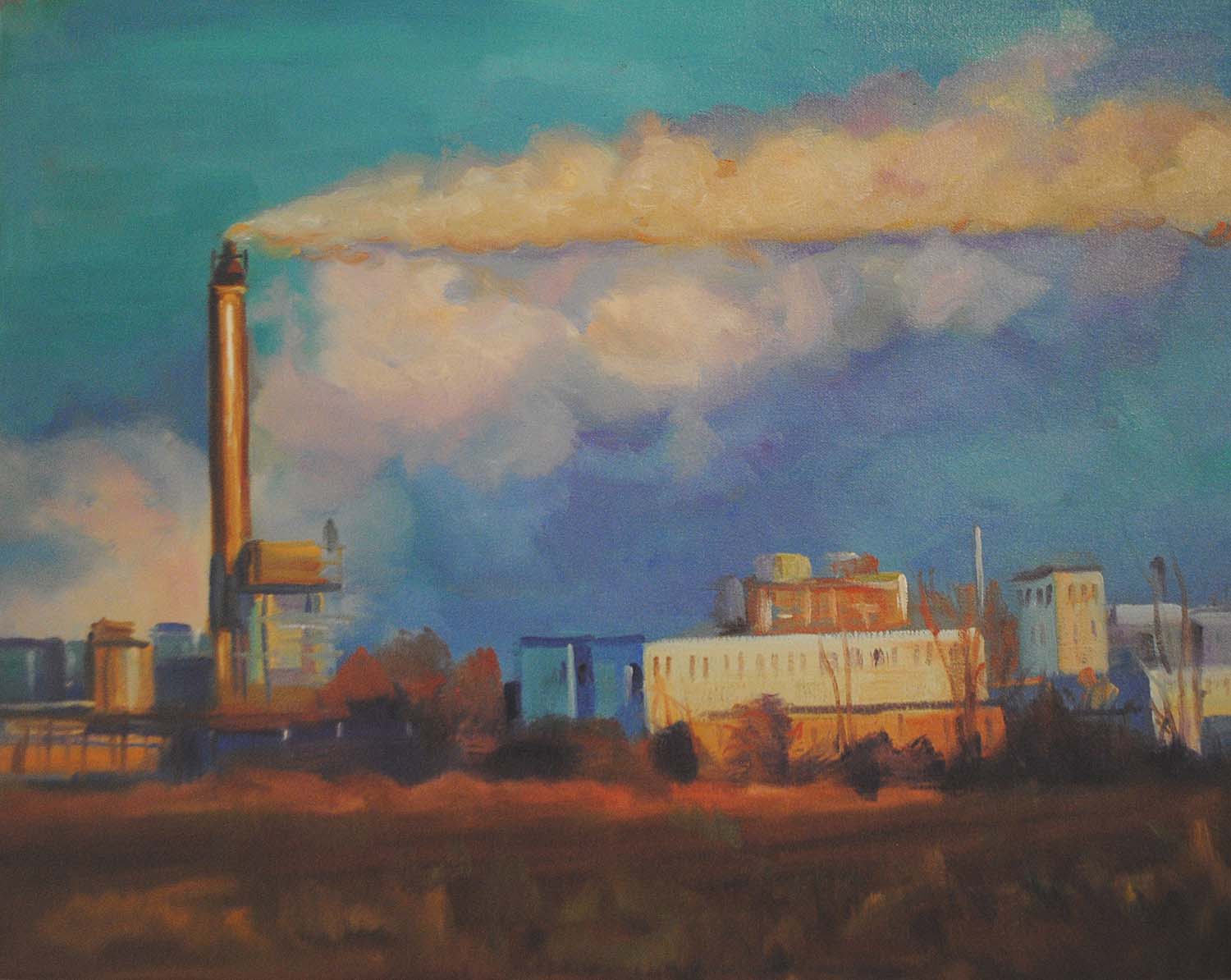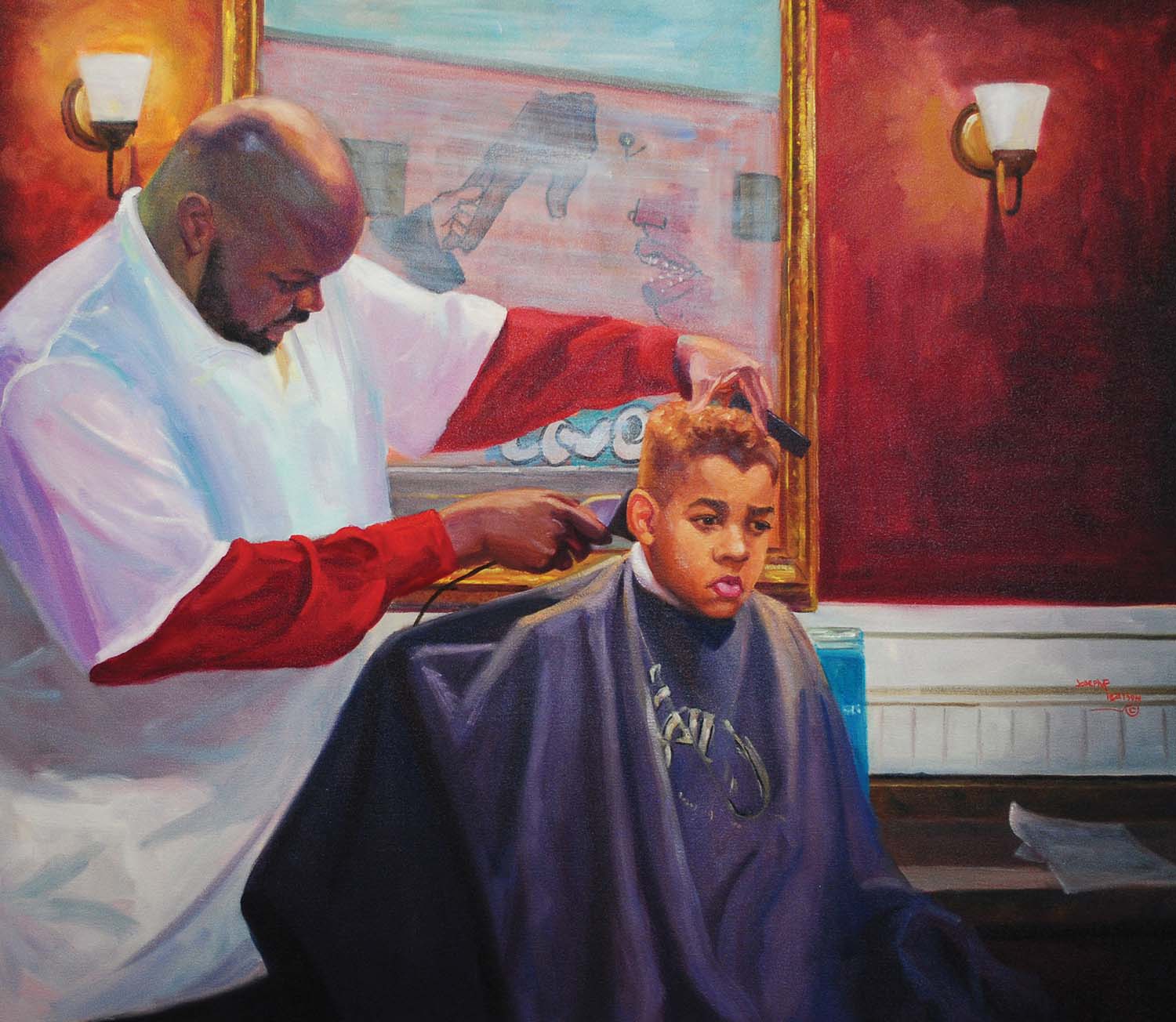
When it comes to crude oil, the world has a drinking problem. That’s the attitude Joseph Pearson took toward pollution in the exhibit he recently curated for Pink Dog Creative, A Contemporary Response to Our Changing Environment. The artist’s own oil canvas for the show, Save the Children, features a Chinese toddler wearing a particle mask to counter the smog that obscures the skyscrapers in the background — the piece invites the viewer to an uncomfortable conversation, a societal intervention.
“The foundation of my work has always been to look at the things folks don’t want to look at or talk about,” explains Pearson. “If somebody in the family’s got a big alcohol problem, nobody wants to talk about it. But you’ve got to talk about it! Nothing gets resolved unless you communicate.”

Since his childhood during the 1960s on the segregated Mississippi Gulf Coast, Pearson has been drawn to addressing contemporary issues through art. He remembers being influenced early on by the social realists of the Works Progress Administration, who created large-scale public artwork in response to the Great Depression of the 1930s.
Those murals and sculptures often put a human face on the abstract concepts of labor and poverty, an approach Pearson has also adopted in his figurative paintings. “When we talk about pollution, we talk about it being in the air and the ozone layer,” he says. “But pollution is affecting people, and even if it’s not directly affecting us in Asheville yet, it affects us because we share a common humanity.”
By focusing on concrete, relatable images such as the Chinese child, Pearson hopes to snap his viewers out of the numbness to issues that can arise from media information overload. “We tend to listen to news in 30-second sound bites. We hear it, and then we’re off to something else,” he says, sweeping his hand away while exhaling in a whoosh.

“When you take this issue and address it from a visual point of view, you force folks to stop for a minute,” Pearson adds. “I want to make the public at large more aware of what’s going on with the climate and what we can do as individuals to protect the environment.” Many of his environment-themed works are mixed media and included recycled materials, but it was another oil painting, the cityscape “Ethereal,” that was recently accepted into a national juried exhibit at Berkeley Art Works, an artists’ collective in Martinsburg, West Virginia; the work will receive an award at the gallery on April 6.
Pearson’s other series of oils address current events as well. He devotes more than one canvas to figures deeply absorbed in their phones, oblivious to the world around them. A more searing portrait shows a young veteran missing both legs and a portion of his skull. The artist’s nudes and ink-wash drawings, on the other hand, are subtle and gently moody.
Now that A Contemporary Response to Our Changing Environment has wrapped up, Pearson plans to move on to the issue of mass incarceration. He particularly criticizes the waste of human potential and money involved with the War on Drugs, which disproportionately imprisons men of color for minor offenses.
While he acknowledges that tackling such weighty topics might make his art less widely marketable, Pearson feels an obligation to use his talents for social progress. “As Shakespeare once wrote, ‘To thine own self be true,’” he says. “When I look at what’s going on in the world today, I just can’t keep quiet about it.”
Joseph Pearson, 348 Depot St. Suite 130 (Pink Dog Creative in the River Arts District). For more information, call504-615-4998 or see josephart.net.